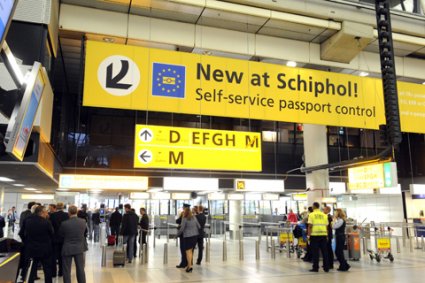
Admission of students
The admission of students primarily concerns higher education as that is the level at which international mobility is most common. Apart from determining the specific conditions for admission of each of these four categories, the Directive defines the principal criteria for the admission of third-country nationals for the purposes of studies, pupil exchange, unremunerated training or voluntary service, in particular the availability of adequate financial resources and admission to an educational establishment, participation in a pupil exchange scheme, signature of a training agreement or participation in a voluntary service scheme, as the case may be.
Admission conditions
See our page on insurance abroad!
The Directive determines the basic conditions for admitting third-country nationals for the purpose of study:
- the applicant must have been accepted by an establishment of higher education;
- the applicant must have sufficient resources to cover his/her subsistence, study and return travel costs;
- the applicant must have sufficient knowledge of the language of the course to be followed (a flexible condition left to the discretion of the Member States);
- prior payment of the fees charged by the establishment (a flexible condition left to the discretion of the Member States).
Validity and renewal of residence permits. The period of validity of residence permits varies according to the category:
- students: a residence permit is issued to the student for a period of at least one year and renewable if the holder continues to meet the conditions. Where the duration of the course of study is less than one year, the permit is valid for the duration of the course;
- unremunerated trainees: the duration of the placement is for a maximum of one year. In exceptional cases, it may be renewed, once only and exclusively for such time as is needed to acquire a vocational qualification recognised by a Member State;
Rights of third-country nationals
The Directive provides that students shall be entitled to be employed and may be entitled to exercise self-employed economic activity. But access to economic activities for the first year of residence may be restricted by the host Member State.
Procedure and transparency
- a decision on a residence permit must be adopted, and the applicant must be notified of it, within a period that does not hamper the pursuit of the relevant studies, whilst leaving the competent authorities sufficient time to process the application;
- if the information supplied in support of the application is inadequate, processing of the application may be suspended and the competent authorities must inform the applicant of any further information they need;
- any decision rejecting an application for a residence permit must be notified to the third-country national concerned. The notification must specify the possible redress procedures available;
- where an application is rejected or a residence permit issued in accordance with this Directive is withdrawn, the person concerned shall have the right to mount a legal challenge before the authorities of the Member State concerned. The Directive provides for an agreement on a fast-track procedure for issuing residence permits or visas to students and school pupils between the authority of a Member State with responsibility for the entry and residence of third-country nationals and an establishment of higher education or an organisation operating pupil exchange schemes.
















